|

|
College
students research Prophetstown as Treaty Bicentenntial is planned
By Bob Robinson
GREENVILLE – Two college students, Mark Ressl and Karl Schulz, prepare
to embark on a journey of the historical Prophetstowns that had their
origination in Darke County. They spoke June 1 at a Treaty of
GreeneVille Bicentennial Commission meeting at Shawnee Prairie.
Ressl and Schulz, students at The Cooper Union for the Advancement of
Science and Art, Manhattan, N.Y., have received a Menschel Fellowship
research award to map and follow the Prophet’s trails during and
following the signing of the Second Treaty of GreeneVille.
“I first had an interest in The Prophet when I visited Prophetstown in
Indiana,” Ressl said. “I saw what I felt were possible inconsistencies…
things that didn’t seem right (in the depiction of the early
settlement).” He noted some of the ways in which the structures were
built, that the area seemed more for political rallies and camping.
He didn’t realize it at the time but the Indiana location wasn’t the
first Prophetstown. The first was in Greenville.
“The council house here has trusses that were based off of drawings of
the actual structures of the time,” Ressl said. “It was a matter of
taking the time to research.”
The two students plan to follow the Prophet’s trail into Indiana.
They’ll walk Hwy. 128 to Deerfield, Ind., then canoe where the
Mississinawa River is more manageable down to the Wabash River near
LaFayette.
There were actually five Prophetstowns, according to Susan Gray,
president of the Commission. The first was at the current site of Darke
County Park District’s Shawnee Prairie from 1805 to 1809. Two were in
Indiana; one from 1809 to 1811, the next from 1811 to 1812. The fourth
one was in Ontario, Canada, where The Prophet stayed until 1824.
The final Prophetstown, Gray said, is in Kansas City, Kans., where The
Prophet is buried.
“This last Prophetstown has been designated a National Historical
Site,” she added. “I’m hoping that at our Bicentennial celebration next
year we can announce that the first Prophetstown will also be
designated a National Historical Site.”
The Treaty City is home to two Treaties of GreeneVille, Gray said. The
first was in 1795, the second was on July 22, 1814, where the native
tribes were asked to help the United States end the War of 1812 against
the British and hostile Indian tribes.
“General (William Henry) Harrison gifted three silver pipes to the
natives. They were huge… they were gorgeous,” Gray said. She added that
one is in Washington, D.C., one is in Kansas City… the third had been
lost.
“The one in Kansas City will be loaned to us for the bicentennial,” she
said.
Gray said the Treaty of GreeneVille (the second one) was written on
both sides of a 30 in. by 37 in. buckskin. The Commission has purchased
two skins on which to replicate the treaty for permanent display at the
Garst Museum and the Shawnee Prairie Nature Education Center.
In a letter written by Gray, she says the Bicentennial Celebration will
include representatives of the nine native tribes and local, state and
federal officials. The native representatives will be presented with a
Tecumseh wampum belt just as they were at the first GreeneVille Treaty
commemoration.
“The 22,000 quahog shell beads have already been purchased and local
resident Nancy Stump has volunteered her time to weave these belts.”
Following their presentation, the two students went out into the wooded
areas surrounding the Nature Center. They noted several things that
were indicative of the Native American presence hundreds of years
earlier.
One was in several tree stands.
“They (the groupings) seem intentional,” Ressl said. “Some of these
trees are over 300 years old. I’ve seen the same circle of trees
before. They appear to be intentional, but of course I have no proof…
“If they were, these peoples had longer foresight into the future than
anything we do.”
Published courtesy
of the Early Bird
|
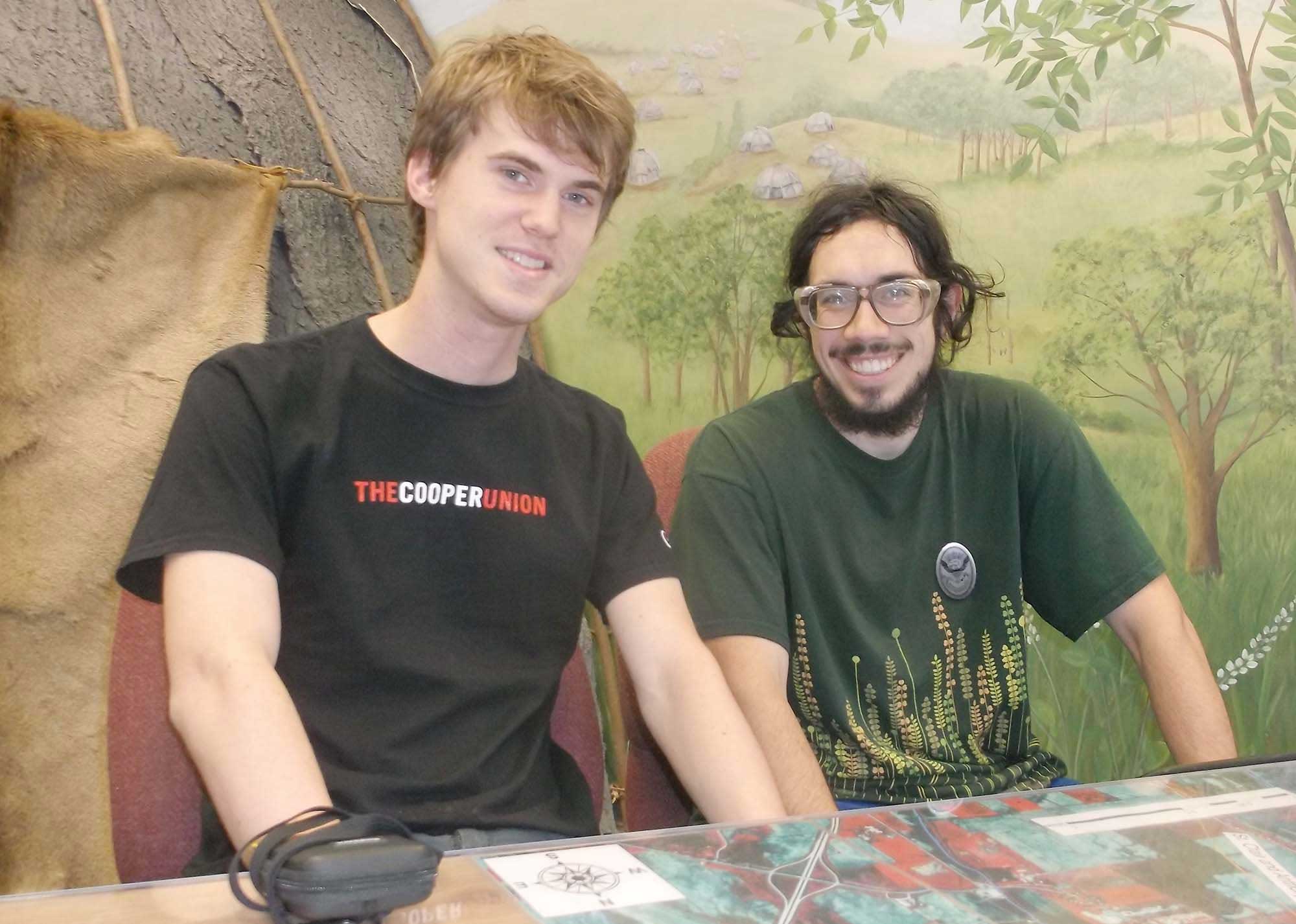
|
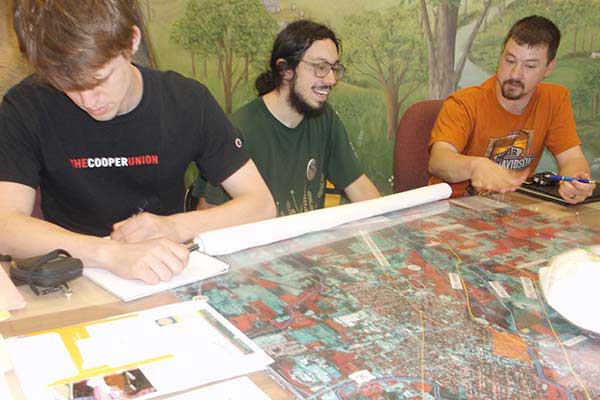
|
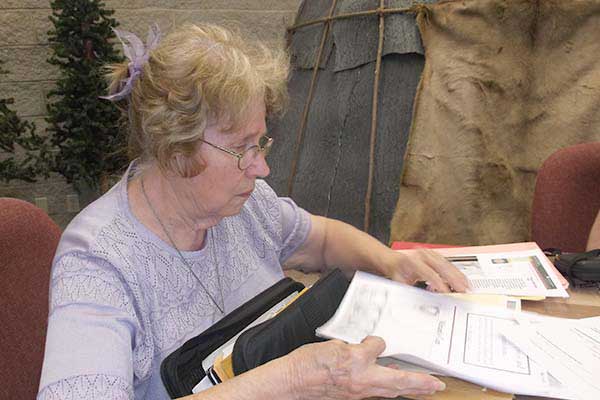
|
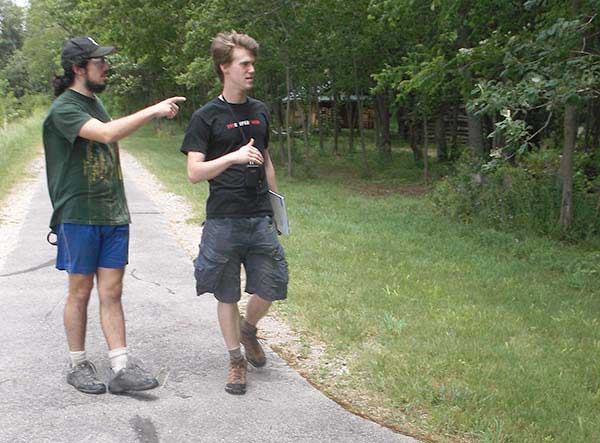
|
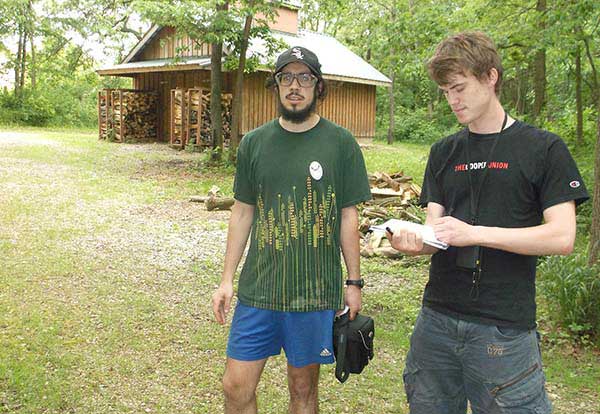
|
|
|
|

